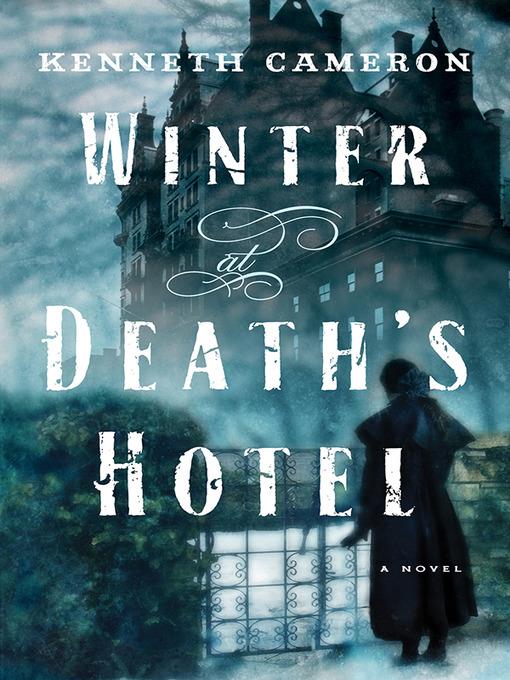
Winter at Death's Hotel
A Novel
کتاب های مرتبط
- اطلاعات
- نقد و بررسی
- دیدگاه کاربران
نقد و بررسی

July 1, 2013
Arthur Conan Doyle takes a backseat to his strong-willed but devoted first wife, Louisa, during an 1896 American publicity tour in this gripping tale of mass mayhem from Cameron (The Bohemian Girl). No sooner does the famed couple settle into their suite at Manhattan’s New Britannic Hotel than a young woman, somehow familiar to Louisa, is found savagely murdered in a nearby Bowery alleyway. Police Commissioner Theodore Roosevelt proves slightly inept as he strives to control a crime wave in a gang-ridden city where women are frequent victims of assault. New Yorkers begin to fear that they might have their own version of Jack the Ripper on the loose after another butchered body turns up. Louisa assumes the detective role when an injury prevents her from accompanying her husband to Buffalo and beyond on his book tour. The action builds to an enigmatic and harrowing resolution. The explicit sex and violence may not be to the taste of every Holmes fan.

August 1, 2013
After his recent resurrection of Jack the Ripper (The Frightened Man, 2009), Cameron crosses the ocean with Arthur Conan Doyle and his indomitable wife and finds, in 1896 New York, an equally depraved killer of women. As the Doyles arrive at the New Britannic hotel, Louisa Doyle--"Touie" to her husband--sees a Titian-haired young woman crossing the lobby with a handsome young man. The next day, the redheaded woman is horribly dead in the Bowery, mutilated and unidentified. Recognizing her face from a newspaper sketch, Louisa tells Arthur that she'd seen the woman in their hotel. His reaction is affectionate but dismissive: Touie must have been imagining things; she mustn't make her husband look ridiculous by putting herself forward as "Mrs. Sherlock Holmes." When a sprained ankle maroons Louisa at the New Britannic as Arthur sets off on a lecture tour, she tries to share her knowledge with other people, beginning with New York Police Commissioner Theodore Roosevelt. Their reactions are equally dismissive but a lot less affectionate. Given the rampant corruption among the ranks of the NYPD, Louisa's limited mobility and her equally (and surprisingly) limited exchequer, she won't be able to shed any light on the Bowery Butcher, whose list of victims grows apace, without some new friends. Fortunately, these include New York Express reporter A.M. Fitch, celebrity actor Henry Irving, pioneering feminist Victoria Woodhull, novelist/spiritualist Marie Corelli and Col. William F. Cody, aka Buffalo Bill. Though she runs rings around the police, Louisa is no great shakes as a detective; the high points in this horrific period tale are the moments when she stands up to a series of condescending males, including, in the treasurable final tableau, her famous husband. Rated R for graphic sexual violence, official corruption and the liberal use of obscenities by figures on both sides of the law.
COPYRIGHT(2013) Kirkus Reviews, ALL RIGHTS RESERVED.

August 1, 2013
Arthur Conan Doyle is lecturing across America while his wife, Louisa, with a sprained ankle, stays behind at a swanky New York hotel. Bored and aching, Louisa vows to help find the killer in the stabbing murder of a woman last seen in the hotel. The murderer, dubbed the Butcher, is an American Jack the Ripper, but is Louisa Doyle up to the task of playing Sherlock Holmes? Victorian suspense author Cameron (The Frightened Man, 2009) aptly portrays both police corruption and Teddy Roosevelt's misguided reform efforts while contrasting the privileged world of the hotel denizens with the rigors of lower-class life. Newly emancipated women are also set against unreasonable, bullying, and often violent men. In a refreshing shift from most stories set in this period, women are the strong, smart heroes. At times the novel suffers from inertiawith Louisa on crutches chasing a villain who easily evades herbut complex characters with their illicit liaisons and a psychopath's bloody trail, plus the shocking denouement, create the requisite dark tension, similar to that of Alex Grecian's The Black Country and the creative horror of Preston and Child's Pendergast series.(Reprinted with permission of Booklist, copyright 2013, American Library Association.)

























دیدگاه کاربران